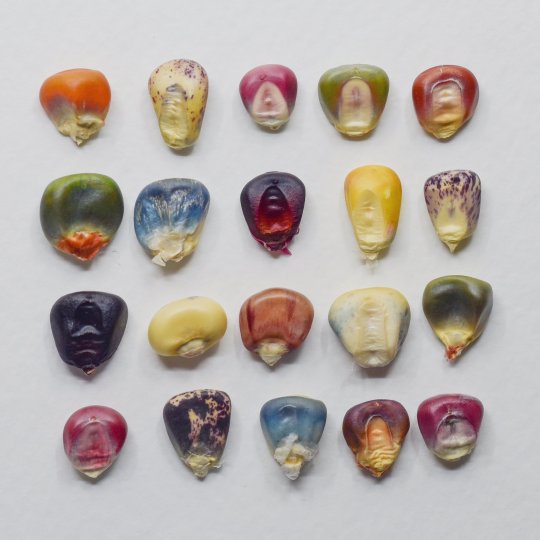#a plant or not'
Explore tagged Tumblr posts
Text
"is this a plant or a weed" im going to pull all the hair out of your head
#finally working up the nerve to make some progress on fixing up my garden#after it got completely destroyed by the ppl who replaced our roof#and im just sitting here SEETHING at all the damage#and i cant stop thinking abt how when i brought the inspsction guy around the yard and gave him a detailed explenation of all the damage#he was like 'well you have to understand we dont know a lot about gardening. a lot of this stuff even i wouldnt be able to tell if it was a#a plant or not'#and I KNOW EXACTLY WHAT HE WAS IMPLYING#he didnt think my plants where rocks#he thoight they where 'WEEDS'#and instead of thinking 'lets try not to destroy any plantlife#those assholes thought 'lets try not to destroy anything that Looks Like A REAL Plant'#but all those WEEDS???? yeah lets STOMP ALL OVER THEM#ARGHGRHGHRHRH BITING GNAWING#I HATE MAINSTREAM GARDEN CULTURE YOURE ALL IDIOTS#ITS ALL PLANTS ITS ALL PLANTS#STOP MAKING PRECONCEIVED NOTIONS ABT WHAT DESERVES TO LIVE BASED ON APPERANCE OH MY GOD#text#lawn posting#<- because i blame stupid ass colonizer rich person lawn culture bs for this attitude#and they still stomped on my hostas and irsises and hakone grass anyway
24 notes
·
View notes
Text
I knew poinsettias "faked" having big flowers by just turning some leaves red but I didn't know the real tiny flowers in the middle looked like such idiots



71K notes
·
View notes
Text

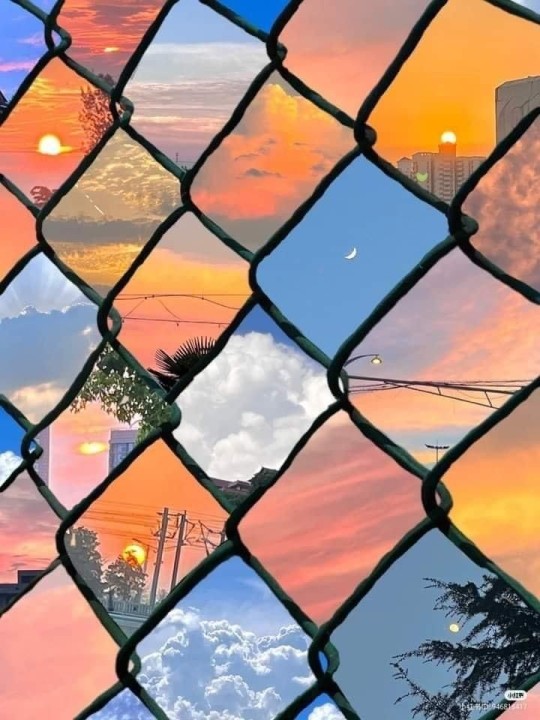


㋡🥀
colors of the sky.
#nature#art#design#beauty#scenery#photography#sky#cute#photographers on tumblr#artwork#artists on tumblr#cottagecore#naturecore#plants#inspiration#motivation#alternative#aesthetic#travel#landscape#paradise#adventure#exlore#traveling#indie#style#vintage#retro#pretty#dark academic aesthetic
107K notes
·
View notes
Text
oh so you’re telling me the guy had a 3 page handwritten explanation of his motives and mindset and a gun and silencer that matches the description despite it being a week since the guy was shot? hmmmm interesting
#how convenient#how convenient for them to just find a guy that happens to have all this shit on him#there’s no way it could have planted#<- sarcasm by the way#luigi mangione#brian thompson#uhc ceo#the claims adjuster#united healthcare#sparkle.txt
47K notes
·
View notes
Text

Goodnight.
#original art#flowers#plants#digital art#illustration#artists on tumblr#night#blue#foliage#digital illustration#This be my last drawing before the New Yearrr#thank you everyone for enjoying my work! hoping next year I'll have more opportunities to continue my art journey ✨#image described
36K notes
·
View notes
Text
TIP:
This holiday season, if you know someone who likes house plants,
DON'T
get them a houseplant. DO NOT.
instead, get them a NICE, MEDIUM-LARGE, AESTHETIC, BOTTOM-DRAINING, INDOOR
POT.
that is what they want. that is what they dream of. ok? thats what will be most useful and appreciated. in fact, if you can, get them a CUTE MATCHING SET. OF POTS!!!! NOT PLANTS, POTS!!!!!!!!
they may be more excited initially about the plant. that is true. but a pot is a gift that they will go home and use to upsize one of their already beloved houseplants, and every time they look at it they will remember how much they appreciate you.
HOUSEPLANT:
- they already have so many
- needs to be watered
- takes up window space
- comes in a pot thats already too small, needs to be upsized, costing money
- can die
AESTHETIC POT
- lets them care for an existing plant they own
- they will be grateful every time they see it in their home
- does not take up window space not already occupied by a plant
- can be wrapped without dying or spilling dirt everywhere
42K notes
·
View notes
Text
🙏😔Stop, please 😔🙏
Don't ignore me, listen to our sad story💔🥹🍉

My name is Kariman Dohan, I am 25 years old. I was a committed and diligent teacher, and my husband, Ayman Olwan, 30 years old, is a business administration graduate, but due to unemployment and difficult conditions in Gaza, he was forced to work as a fisherman. We have a wonderful son named Hamoud, who is one and a half years old. We live in Gaza, specifically Khan Yunis, where the fishing boat, fishing equipment and the school where I worked were damaged،Everything we relied on to survive has collapsed: our home, my job, and my husband’s income. We are struggling daily to endure the cold, hunger, and the continuous bombing that threatens our lives every moment🥹💔
🥹🫂💔😭😭😭😭





We have been displaced several times, and our tragedy has reached the point that we now live in a tent that is unfit for living. We desperately need your help, I have launched a donation campaign but I cannot get the funds so I can get $75000 to get through this current crisis.
Or through PayPal
Before the war and after the war, this is what happened to us😔💔




................
I know that the world is full of people who want to help others, and you are one of them. Please be with us in this ordeal and share your donation to help us get out of these difficult situations🫂🥹🥹🙏🙏🍉
Donate, share and be the reason for our happiness 🙏❤️🫂🥹🍉😭🇵🇸💔😣
Donation Link
#rwby#succession#ted lasso#the owl house#barbie#wally darling#palestine#free gaza#gaza#free palestine#save palestine#send help#gaza strip#support#music#famine#twitter#instagram#tumbler#usa#muslim#woman#gay#🏳️🌈#🍉#🇵🇸#europe#africa#australia#the world of mr plant
30K notes
·
View notes
Text

Fidencio Fifield-Perez (Mexican, d.o.b. unknown) - The Garden (2023)
24K notes
·
View notes
Text
What's everyone's favourite flowers that aren't like. The normal ones. Like everyone's a fan of roses and sunflowers what's a more niche one. One you don't get in gift sets. Mine's sweet peas
#other good ones are crocuses and lilacs#one time I was ill and depressed and my mum brought me a lil milk bottle full of fresh cut sweet peas from her garden 💖#i like that theyre colourful and i like climbing plants and they smell amazing#posts brought to you by me going to the park on my lunch break just to see all the crocuses
59K notes
·
View notes
Text
Planet's Fucked: What Can You Do To Help? (Long Post)
Since nobody is talking about the existential threat to the climate and the environment a second Trump term/Republican government control will cause, which to me supersedes literally every other issue, I wanted to just say my two cents, and some things you can do to help. I am a conservation biologist, whose field was hit substantially by the first Trump presidency. I study wild bees, birds, and plants.
In case anyone forgot what he did last time, he gagged scientists' ability to talk about climate change, he tried zeroing budgets for agencies like the NOAA, he attempted to gut protections in the Endangered Species Act (mainly by redefining 'take' in a way that would allow corporations to destroy habitat of imperiled species with no ramifications), he tried to do the same for the Migratory Bird Treaty Act (the law that offers official protection for native non-game birds), he sought to expand oil and coal extraction from federal protected lands, he shrunk the size of multiple national preserves, HE PULLED US OUT OF THE PARIS CLIMATE AGREEMENT, and more.
We are at a crucial tipping point in being able to slow the pace of climate change, where we decide what emissions scenario we will operate at, with existential consequences for both the environment and people. We are also in the middle of the Sixth Mass Extinction, with the rate of species extinctions far surpassing background rates due completely to human actions. What we do now will determine the fate of the environment for hundreds or thousands of years - from our ability to grow key food crops (goodbye corn belt! I hated you anyway but), to the pressure on coastal communities that will face the brunt of sea level rise and intensifying extreme weather events, to desertification, ocean acidification, wildfires, melting permafrost (yay, outbreaks of deadly frozen viruses!), and a breaking down of ecosystems and ecosystem services due to continued habitat loss and species declines, especially insect declines. The fact that the environment is clearly a low priority issue despite the very real existential threat to so many people, is beyond my ability to understand. I do partly blame the public education system for offering no mandatory environmental science curriculum or any at all in most places. What it means is that it will take the support of everyone who does care to make any amount of difference in this steeply uphill battle.
There are not enough environmental scientists to solve these issues, not if public support is not on our side and the majority of the general public is either uninformed or actively hostile towards climate science (or any conservation science).
So what can you, my fellow Americans, do to help mitigate and minimize the inevitable damage that lay ahead?
I'm not going to tell you to recycle more or take shorter showers. I'll be honest, that stuff is a drop in the bucket. What does matter on the individual level is restoring and protecting habitat, reducing threats to at-risk species, reducing pesticide use, improving agricultural practices, and pushing for policy changes. Restoring CONNECTIVITY to our landscape - corridors of contiguous habitat - will make all the difference for wildlife to be able to survive a changing climate and continued human population expansion.
**Caveat that I work in the northeast with pollinators and birds so I cannot provide specific organizations for some topics, including climate change focused NGOs. Scientists on tumblr who specialize in other fields, please add your own recommended resources. **
We need two things: FUNDING and MANPOWER.
You may surprised to find that an insane amount of conservation work is carried out by volunteers. We don't ever have the funds to pay most of the people who want to help. If you really really care, consider going into a conservation-related field as a career. It's rewarding, passionate work.
At the national level, please support:
The Nature Conservancy
Xerces Society for Invertebrate Conservation
Cornell Lab of Ornithology (including eBird)
National Audubon Society
Federal Duck Stamps (you don't need to be a hunter to buy one!)
These first four work to acquire and restore critical habitat, change environmental policy, and educate the public. There is almost certainly a Nature Conservancy-owned property within driving distance of you. Xerces plays a very large role in pollinator conservation, including sustainable agriculture, native bee monitoring programs, and the Bee City/Bee Campus USA programs. The Lab of O is one of the world's leaders in bird research and conservation. Audubon focuses on bird conservation. You can get annual memberships to these organizations and receive cool swag and/or a subscription to their publications which are well worth it. You can also volunteer your time; we need thousands of volunteers to do everything from conducting wildlife surveys, invasive species removal, providing outreach programming, managing habitat/clearing trails, planting trees, you name it. Federal Duck Stamps are the major revenue for wetland conservation; hunters need to buy them to hunt waterfowl but anyone can get them to collect!
THERE ARE DEFINITELY MORE, but these are a start.
Additionally, any federal or local organizations that seek to provide support and relief to those affected by hurricanes, sea level rise, any form of coastal climate change...
At the regional level:
These are a list of topics that affect major regions of the United States. Since I do not work in most of these areas I don't feel confident recommending specific organizations, but please seek resources relating to these as they are likely major conservation issues near you.
PRAIRIE CONSERVATION & PRAIRIE POTHOLE WETLANDS
DRYING OF THE COLORADO RIVER (good overview video linked)
PROTECTION OF ESTUARIES AND SALTMARSH, ESPECIALLY IN THE DELAWARE BAY AND LONG ISLAND (and mangroves further south, everglades etc; this includes restoring LIVING SHORELINES instead of concrete storm walls; also check out the likely-soon extinction of saltmarsh sparrows)
UNDAMMING MAJOR RIVERS (not just the Colorado; restoring salmon runs, restoring historic floodplains)
NATIVE POLLINATOR DECLINES (NOT honeybees. for fuck's sake. honeybees are non-native domesticated animals. don't you DARE get honeybee hives to 'save the bees')
WILDLIFE ALONG THE SOUTHERN BORDER (support the Mission Butterfly Center!)
INVASIVE PLANT AND ANIMAL SPECIES (this is everywhere but the specifics will differ regionally, dear lord please help Hawaii)
LOSS OF WETLANDS NATIONWIDE (some states have lost over 90% of their wetlands, I'm looking at you California, Ohio, Illinois)
INDUSTRIAL AGRICULTURE, esp in the CORN BELT and CALIFORNIA - this is an issue much bigger than each of us, but we can work incrementally to promote sustainable practices and create habitat in farmland-dominated areas. Support small, local farms, especially those that use soil regenerative practices, no-till agriculture, no pesticides/Integrated Pest Management/no neonicotinoids/at least non-persistent pesticides. We need more farmers enrolling in NRCS programs to put farmland in temporary or permanent wetland easements, or to rent the land for a 30-year solar farm cycle. We've lost over 99% of our prairies to corn and soybeans. Let's not make it 100%.
INDIGENOUS LAND-BACK EFFORTS/INDIGENOUS LAND MANAGEMENT/TEK (adding this because there have been increasing efforts not just for reparations but to also allow indigenous communities to steward and manage lands either fully independently or alongside western science, and it would have great benefits for both people and the land; I know others on here could speak much more on this. Please platform indigenous voices)
HARMFUL ALGAL BLOOMS (get your neighbors to stop dumping fertilizers on their lawn next to lakes, reduce agricultural runoff)
OCEAN PLASTIC (it's not straws, it's mostly commercial fishing line/trawling equipment and microplastics)
A lot of these are interconnected. And of course not a complete list.
At the state and local level:
You probably have the most power to make change at the local level!
Support or volunteer at your local nature centers, local/state land conservancy non-profits (find out who owns&manages the preserves you like to hike at!), state fish & game dept/non-game program, local Audubon chapters (they do a LOT). Participate in a Christmas Bird Count!
Join local garden clubs, which install and maintain town plantings - encourage them to use NATIVE plants. Join a community garden!
Get your college campus or city/town certified in the Bee Campus USA/Bee City USA programs from the Xerces Society
Check out your state's official plant nursery, forest society, natural heritage program, anything that you could become a member of, get plants from, or volunteer at.
Volunteer to be part of your town's conservation commission, which makes decisions about land management and funding
Attend classes or volunteer with your land grant university's cooperative extension (including master gardener programs)
Literally any volunteer effort aimed at improving the local environment, whether that's picking up litter, pulling invasive plants, installing a local garden, planting trees in a city park, ANYTHING. make a positive change in your own sphere. learn the local issues affecting your nearby ecosystems. I guarantee some lake or river nearby is polluted
MAKE HABITAT IN YOUR COMMUNITY. Biggest thing you can do. Use plants native to your area in your yard or garden. Ditch your lawn. Don't use pesticides (including mosquito spraying, tick spraying, Roundup, etc). Don't use fertilizers that will run off into drinking water. Leave the leaves in your yard. Get your school/college to plant native gardens. Plant native trees (most trees planted in yards are not native). Remove invasive plants in your yard.
On this last point, HERE ARE EASY ONLINE RESOURCES TO FIND NATIVE PLANTS and LEARN ABOUT NATIVE GARDENING:
Xerces Society Pollinator Conservation Resource Center
Pollinator Pathway
Audubon Native Plant Finder
Homegrown National Park (and Doug Tallamy's other books)
National Wildlife Federation Native Plant Finder (clunky but somewhat helpful)
Heather Holm (for prairie/midwest/northeast)
MonarchGard w/ Benjamin Vogt (for prairie/midwest)
Native Plant Trust (northeast & mid-atlantic)
Grow Native Massachusetts (northeast)
Habitat Gardening in Central New York (northeast)
There are many more - I'm not familiar with resources for western states. Print books are your biggest friend. Happy to provide a list of those.
Lastly, you can help scientists monitor species using citizen science. Contribute to iNaturalist, eBird, Bumblebee Watch, or any number of more geographically or taxonomically targeted programs (for instance, our state has a butterfly census carried out by citizen volunteers).
In short? Get curious, get educated, get involved. Notice your local nature, find out how it's threatened, and find out who's working to protect it that you can help with. The health of the planet, including our resilience to climate change, is determined by small local efforts to maintain and restore habitat. That is how we survive this. When government funding won't come, when we're beat back at every turn trying to get policy changed, it comes down to each individual person creating a safe refuge for nature.
Thanks for reading this far. Please feel free to add your own credible resources and organizations.
#us election#climate change#united states election#resources#native plants#this took 3 hours to write so maybe don't let it flop? i know i write long posts. i know i follow scientists on here#that study birds and corals and other creatures#i realize i did not link sources/resources for everything. i encourage those more qualified to add things on. i need to go to work
18K notes
·
View notes
Photo
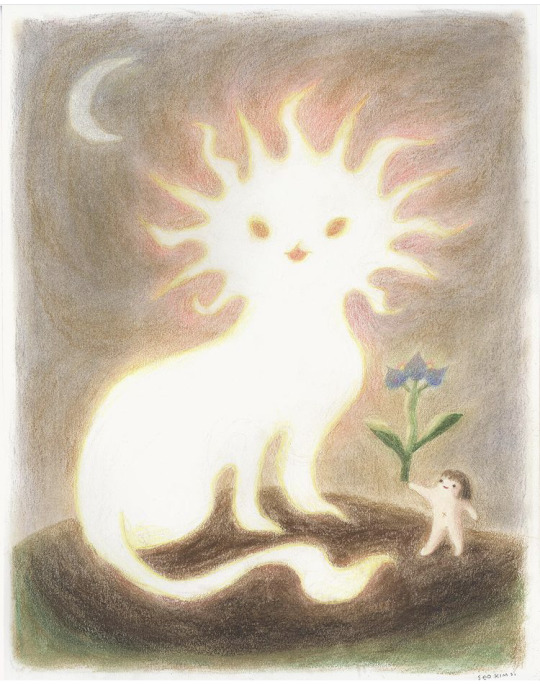
by Seo kim
22K notes
·
View notes
Text
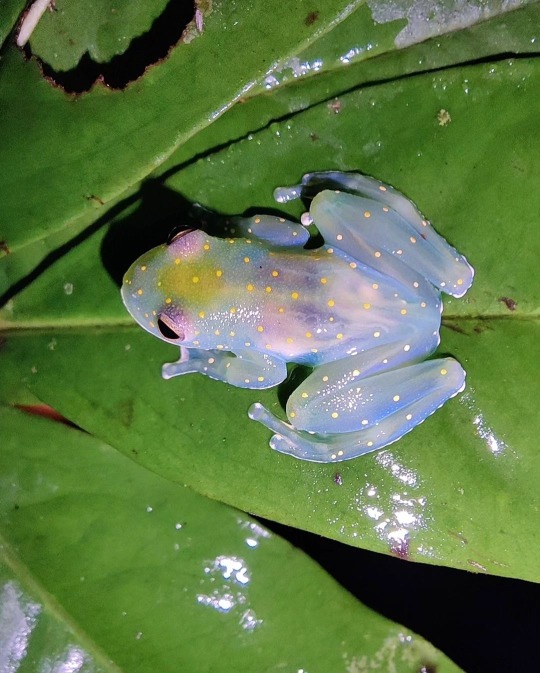
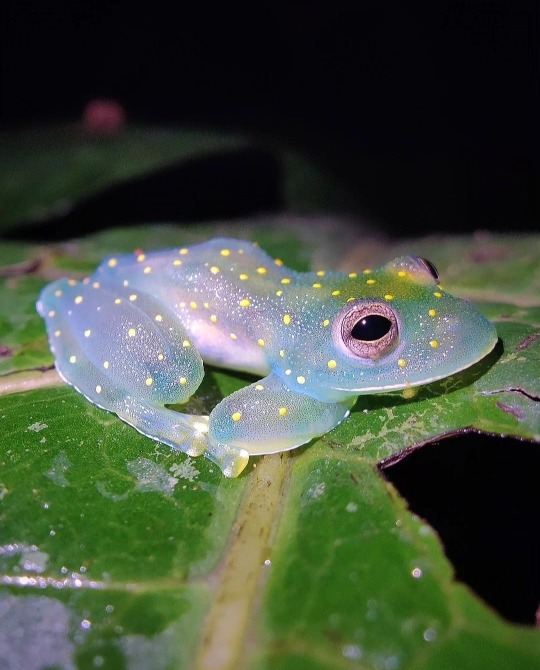
by nuqui_herping
#frog#frogs#animals#aesthetic#nature#naturecore#photography#fairycore#plants#amphibia#pastel#pastel aesthetic#curators on tumblr#up
56K notes
·
View notes
Text
#tiktok#andrew_the_arborist#urban gardening#urban landscape#ecofriendly#native wildflowers#eco friendly#eco lawn#native plants#garden#gardening
100K notes
·
View notes
Text
㋡🥀
#nature#art#design#beauty#scenery#amazing#photography#cute#photographers on tumblr#artwork#artists on tumblr#cottagecore#naturecore#plants#inspiration#motivation#alternative#aesthetic#travel#landscape#paradise#adventure#exlore#traveling#indie#style#vintage#retro#pretty#dark academic aesthetic
32K notes
·
View notes
